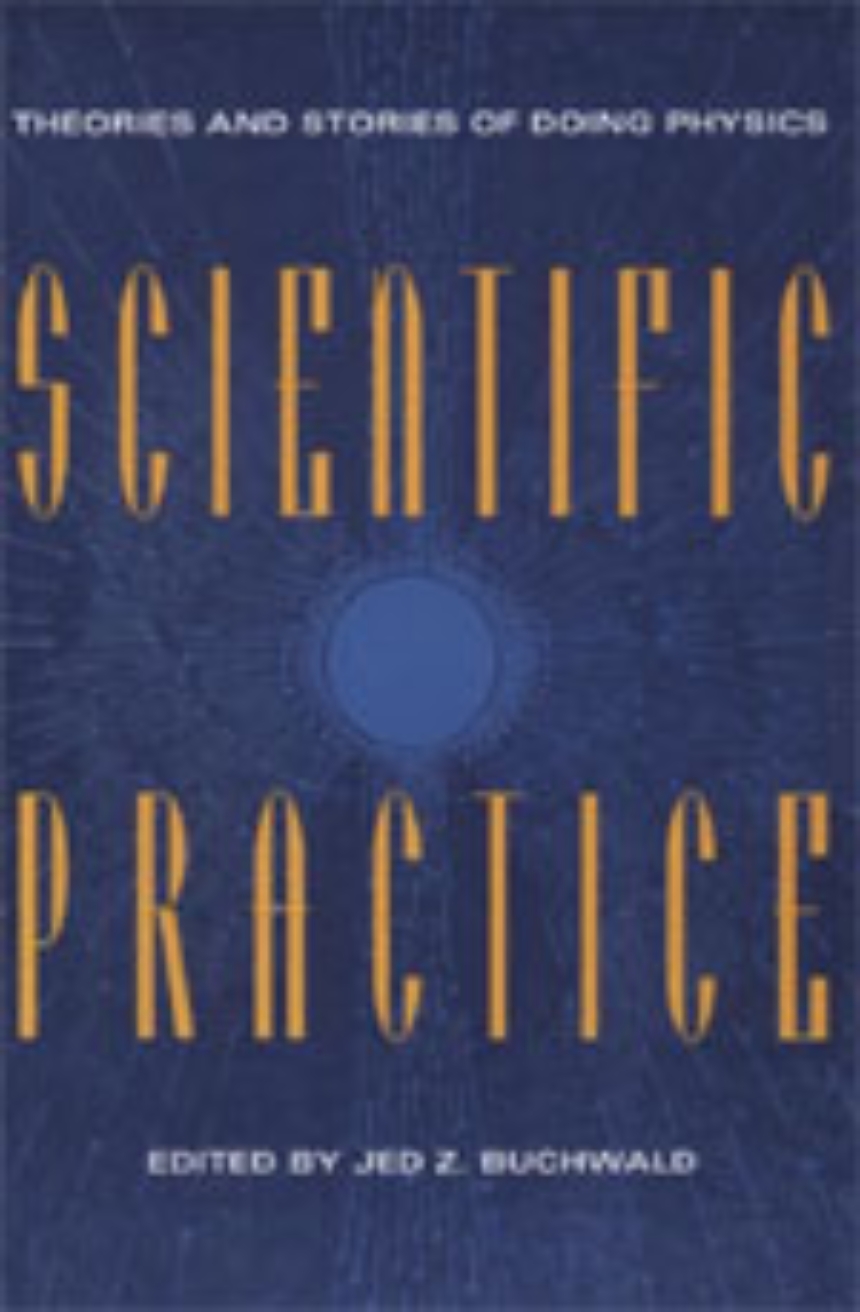Scientific Practice
Theories and Stories of Doing Physics
Most recent work on the nature of experiment in physics has focused on "big science"—the large-scale research addressed in Andrew Pickering’s Constructing Quarks and Peter Galison’s How Experiments End.
This book examines small-scale experiment in physics, in particular the relation between theory and practice. The contributors focus on interactions among the people, materials, and ideas involved in experiments—factors that have been relatively neglected in science studies.
The first half of the book is primarily philosophical, with contributions from Andrew Pickering, Peter Galison, Hans Radder, Brian Baigrie, and Yves Gingras. Among the issues they address are the resources deployed by theoreticians and experimenters, the boundaries that constrain theory and practice, the limits of objectivity, the reproducibility of results, and the intentions of researchers. The second half is devoted to historical case studies in the practice of physics from the early nineteenth to the early twentieth century. These chapters address failed as well as successful experimental work ranging from Victorian astronomy through Hertz’s investigation of cathode rays to Trouton’s attempt to harness the ether. Contributors to this section are Jed Z. Buchwald, Giora Hon, Margaret Morrison, Simon Schaffer, and Andrew Warwick.
With a lucid introduction by Ian Hacking, and original articles by noted scholars in the history and philosophy of science, this book is poised to become a significant source on the nature of small-scale experiment in physics.
This book examines small-scale experiment in physics, in particular the relation between theory and practice. The contributors focus on interactions among the people, materials, and ideas involved in experiments—factors that have been relatively neglected in science studies.
The first half of the book is primarily philosophical, with contributions from Andrew Pickering, Peter Galison, Hans Radder, Brian Baigrie, and Yves Gingras. Among the issues they address are the resources deployed by theoreticians and experimenters, the boundaries that constrain theory and practice, the limits of objectivity, the reproducibility of results, and the intentions of researchers. The second half is devoted to historical case studies in the practice of physics from the early nineteenth to the early twentieth century. These chapters address failed as well as successful experimental work ranging from Victorian astronomy through Hertz’s investigation of cathode rays to Trouton’s attempt to harness the ether. Contributors to this section are Jed Z. Buchwald, Giora Hon, Margaret Morrison, Simon Schaffer, and Andrew Warwick.
With a lucid introduction by Ian Hacking, and original articles by noted scholars in the history and philosophy of science, this book is poised to become a significant source on the nature of small-scale experiment in physics.
412 pages | 11 halftones, 15 line drawings, 2 tables | 6 x 9 | © 1995
Physical Sciences: History and Philosophy of Physical Sciences
Table of Contents
List of Figures
Analytical Contents
1: Introduction
Ian Hacking
2: Context and Constraints
Peter L. Galison
3: Beyond Constraint: The Temporality of Practice and the Historicity of Knowledge
Andrew Pickering
4: Experimenting in the Natural Sciences: A Philosophical Approach
Hans Radder
5: Scientific Practice: The View from the Tabletop
Brian S. Baigrie
6: Following Scientists through Society? Yes, but at Arm’s Length!
Yves Gingras
7: Why Hertz Was Right about Cathode Rays
Jed Z. Buchwald
8: Is the Identification of Experimental Error Contextually Dependent? The Case of Kaufmann’s Experiment and Its Varied Reception
Giora Hon
9: Scientific Conclusions and Philosophical Arguments: An Inessential Tension
Margaret Morrison
10: Where Experiments End: Tabletop Trials in Victorian Astronomy
Simon Schaffer
11: The Sturdy Protestants of Science: Larmor, Trouton, and the Earth’s Motion through the Ether
Andrew Warwick
Conclusion
Jed Z. Buchwald, Sylvan S. Schweber.
References
Contributors
Index
Analytical Contents
1: Introduction
Ian Hacking
2: Context and Constraints
Peter L. Galison
3: Beyond Constraint: The Temporality of Practice and the Historicity of Knowledge
Andrew Pickering
4: Experimenting in the Natural Sciences: A Philosophical Approach
Hans Radder
5: Scientific Practice: The View from the Tabletop
Brian S. Baigrie
6: Following Scientists through Society? Yes, but at Arm’s Length!
Yves Gingras
7: Why Hertz Was Right about Cathode Rays
Jed Z. Buchwald
8: Is the Identification of Experimental Error Contextually Dependent? The Case of Kaufmann’s Experiment and Its Varied Reception
Giora Hon
9: Scientific Conclusions and Philosophical Arguments: An Inessential Tension
Margaret Morrison
10: Where Experiments End: Tabletop Trials in Victorian Astronomy
Simon Schaffer
11: The Sturdy Protestants of Science: Larmor, Trouton, and the Earth’s Motion through the Ether
Andrew Warwick
Conclusion
Jed Z. Buchwald, Sylvan S. Schweber.
References
Contributors
Index
